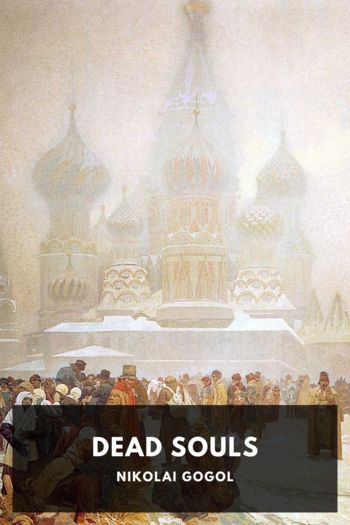Short Fiction - Nikolai Gogol (best selling autobiographies TXT) 📗

- Author: Nikolai Gogol
Book online «Short Fiction - Nikolai Gogol (best selling autobiographies TXT) 📗». Author Nikolai Gogol
Thus spoke the hetman; and after he had finished his speech he still continued to shake his head, which had grown grey in Cossack service. All who stood there were deeply affected by his speech, which went to their very hearts. The oldest in the ranks stood motionless, their grey heads drooping. Tears trickled quietly from their aged eyes; they wiped them slowly away with their sleeves, and then all, as if with one consent, waved their hands in the air at the same moment, and shook their experienced heads. For it was evident that old Taras recalled to them many of the best-known and finest traits of the heart in a man who has become wise through suffering, toil, daring, and every earthly misfortune, or, though unknown to them, of many things felt by young, pure spirits, to the eternal joy of the parents who bore them.
But the army of the enemy was already marching out of the city, sounding drums and trumpets; and the nobles, with their arms akimbo, were riding forth too, surrounded by innumerable servants. The stout colonel gave his orders, and they began to advance briskly on the Cossack camps, pointing their matchlocks threateningly. Their eyes flashed, and they were brilliant with brass armour. As soon as the Cossacks saw that they had come within gunshot, their matchlocks thundered all together, and they continued to fire without cessation.
The detonations resounded through the distant fields and meadows, merging into one continuous roar. The whole plain was shrouded in smoke, but the Zaporozhtzi continued to fire without drawing breath—the rear ranks doing nothing but loading the guns and handing them to those in front, thus creating amazement among the enemy, who could not understand how the Cossacks fired without reloading. Amid the dense smoke which enveloped both armies, it could not be seen how first one and then another dropped: but the Lyakhs felt that the balls flew thickly, and that the affair was growing hot; and when they retreated to escape from the smoke and see how matters stood, many were missing from their ranks, but only two or three out of a hundred were killed on the Cossack side. Still the Cossacks went on firing off their matchlocks without a moment’s intermission. Even the foreign engineers were amazed at tactics heretofore unknown to them, and said then and there, in the presence of all, “These Zaporozhtzi are brave fellows. That is the way men in other lands ought to fight.” And they advised that the cannons should at once be turned on the camps. Heavily roared the iron cannons with their wide throats; the earth hummed and trembled far and wide, and the smoke lay twice as heavy over the plain. They smelt the reek of the powder among the squares and streets in the most distant as well as the nearest quarters of the city. But those who laid the cannons pointed them too high, and the shot describing too wide a curve flew over the heads of the camps, and buried themselves deep in the earth at a distance, tearing the ground, and throwing the black soil high in the air. At the sight of such lack of skill the French engineer tore his hair, and undertook to lay the cannons himself, heeding not the Cossack bullets which showered round him.
Taras saw from afar that destruction menaced the whole Nezamaikovsky and Steblikivsky kuréns, and gave a ringing shout, “Get away from the wagons instantly, and mount your horses!” But the Cossacks would not have succeeded in effecting both these movements if Ostap had not dashed into the middle of the foe and wrenched the linstocks from six cannoneers. But he could not wrench them from the other four, for the Lyakhs drove him back. Meanwhile the foreign captain had taken the lunt in his own hand to fire the largest cannon, such a cannon as none of the Cossacks had ever beheld before. It looked horrible with its wide mouth, and a thousand deaths poured forth from it. And as it thundered, the three others followed, shaking in fourfold earthquake the dully responsive earth. Much woe did they cause. For more than one Cossack wailed the aged mother, beating with bony hands her feeble breast; more than one widow was left in Glukhof, Nemirof, Chernigof, and other cities. The loving woman will hasten forth every day to the bazaar, grasping at all passersby, scanning the face of each to see if there be not among them one dearer than all; but though many an army will pass through the city, never among them will a single one of all their dearest be.
Half the Nezamaikovsky kurén was as if it had never been. As the hail suddenly beats down a field where every ear of grain shines like purest gold, so were they beaten down.
How the Cossacks hastened thither! How they all started up! How raged Kukubenko, the hetman, when he saw that the best half of his kurén was no more! He fought his way with his remaining Nezamaikovtzi to the very midst of the fray, cut down in his wrath, like a cabbage, the first man





Comments (0)